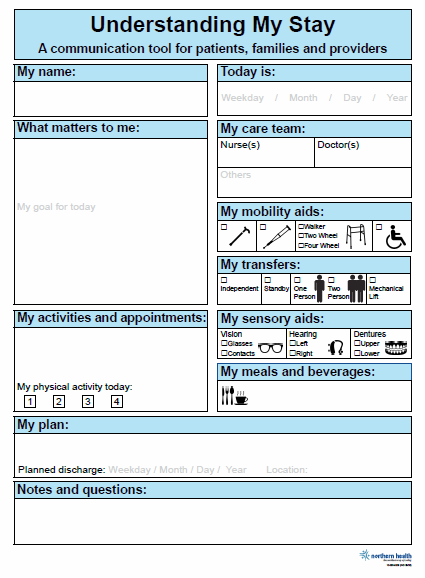Understanding your hospital stay
Your health care team will explain why you’re in the hospital and what needs to happen before you can go home or to another facility. Please note, visiting may look different depending on whether or not it's respiratory season. Visit our respiratory illness page and acute care and hospital information page for more information. Here’s some important information you need to know for your hospital stay.
Hospital routines and reminders
Your health care team can give you information about your hospital unit’s routines (e.g., meal times, visitor guidelines, doctor visits to the unit, etc.). Feel free to ask if you’re not sure.
Please be aware of the following policies that apply to all Northern Health facilities:
- Scent-free: We’re a scent-free zone – everyone who comes to Northern Health's facilities, sites or programs is asked not to use or bring in fragrant/scented products.
- Smoke-free: All Northern Health facilities are smoke-free.
- Visitors: We want to make family and visitors feel welcome in our facilities. For more information on visiting rules during the respiratory illness season, talk to a member of your health care team or visit our acute care and hospital information page.
- Respectful: Workers, physicians, volunteers, patients and visitors have a right to a safe and respectful environment that is free from violence, aggression, and harassment.
- Pet-friendly: Northern Health facilities will make every reasonable effort to facilitate and/or accommodate animal assisted therapy and pet visitation. Please contact a staff member if you would like to bring an animal into a facility. Some other patients may have pet allergies and we need to ensure that bringing pets does not pose a risk to them.
More information
- Ethical choices - Let us help you make a difficult health care decision
- Indigenous Care Team
- Northern Health hospitals
- Patient Care Quality Office
- Preparing for your hospital stay - HealthLink BC

